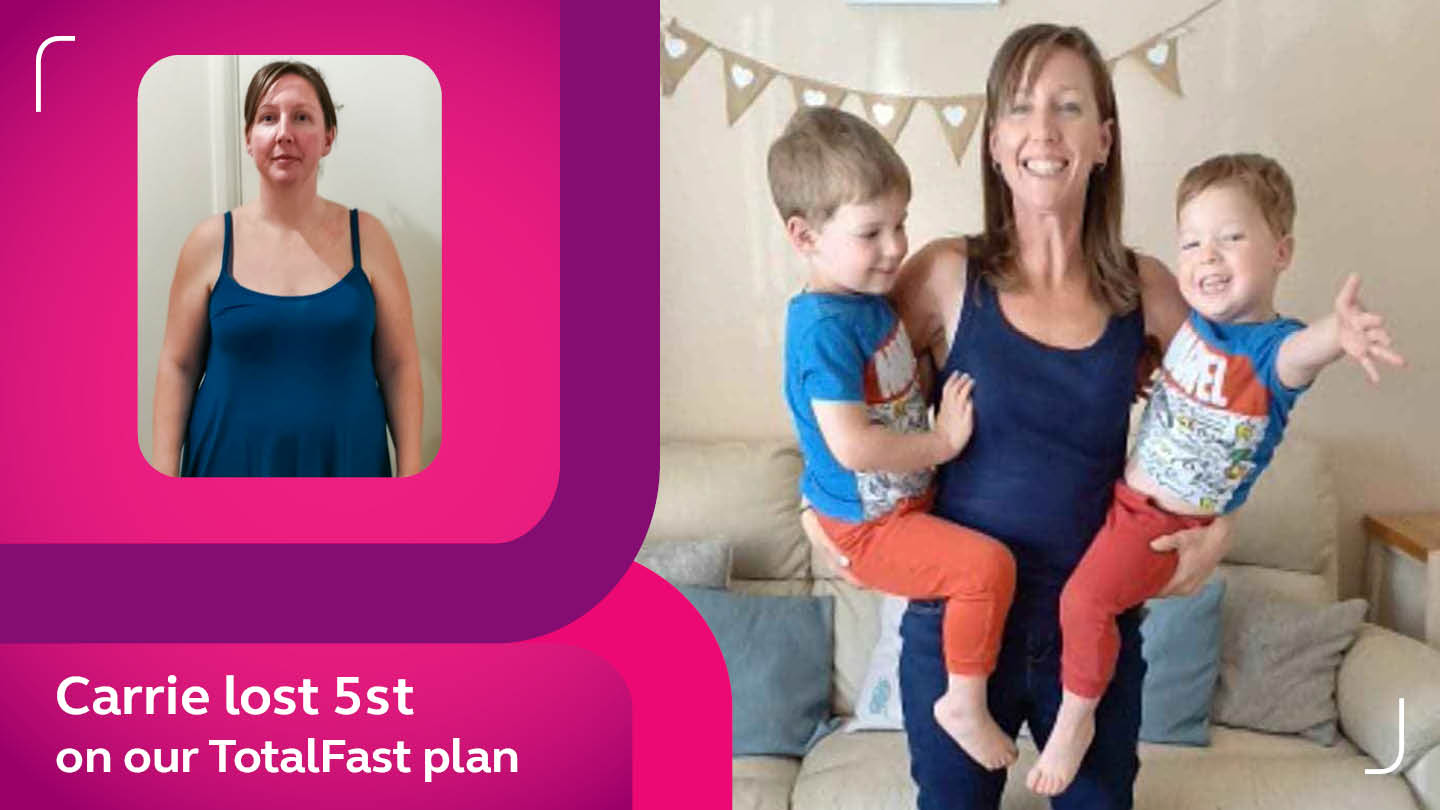
Your Wellness
Find a meeting and get startedYour Wellness

Wellness update
Once a month on Total we’ll ask you for a quick update on your general health and wellbeing, including whether you’re seeing your GP for medication changes if necessary. All you have to do is fill in a short Wellness Update every 28 day (we’ll sort this out for you). If you’re on certain medications or have certain medical conditions, you’ll also need to see your GP before you start and agree any monitoring requirements with them.
If you’re following our LighterLife2U online programme and ordering your Foodpacks from us online, you’ll be asked to tick a health-check box as part of the checkout process every time you place an order. This box is located next to the T&Cs agreement box.
Managing medication and supplements
Take painkillers, cough and cold remedies as normal (sugar-free versions are preferable). Continue to take current prescribed medication unless advised otherwise by your GP.
Diabetes medication – because Total restricts your carbohydrate intake, if you’re diabetic there will probably be rapid changes to your blood-sugar levels when you start the plan, so it’s essential to arrange adjustment of your diabetes medication with your GP, and to continue being monitored on your plan.
High blood-pressure/diuretic medication – this may need adjusting by your GP, because blood pressure usually drops as you lose weight.
Warfarin – because of your change in diet, this may need adjusting by your GP.
Vitamin/mineral supplements – continue to take any supplements recommended by your healthcare provider but do discuss altering the dose of any containing vitamin A (retinol), because it can be toxic in excess.
Minor symptoms
Bowel changes You will probably pass fewer bowel movements on Foodpacks, because you’re taking in less bulk. If you do get constipated, stay well hydrated, use an over-the-counter medication, or increase your fibre intake with our Fibre Mix. If you’re having loose movements but are still in control, having more fibre may help by adding bulk.
Changes in periods Sometimes the length, frequency and heaviness of a woman’s periods can change, and weight loss can improve fertility, so contraception may be necessary to prevent pregnant. Caps may also need to be refitted as weight is lost.
Cramps Can occur due to dehydration, or to greater movement of fluid through your body while losing weight. Either way, staying well hydrated may help (page 23)
Dizziness If you have high blood pressure, dizziness is more likely when you start losing weight because your blood pressure drops, so discuss any blood-pressure medication with your GP. Dizziness can also be caused by dehydration, so do drink enough.
Feeling cold This can happen on any diet, as the body tries to save energy by restricting blood flow to extremities, so you might feel the cold more, especially in your hands and feet.
Gallstones Having a diet high in fatty foods and being overweight both increase the risk of gallstones. Ironically, weight loss can bring on an attack, but having at least 7g fat a day (as you do on Total) poses no greater risk of gallstones than any other weight-loss method.
Gout If you have a history of gout, losing weight can trigger an attack, but generally only in the first two weeks of dieting. If you’re susceptible, see your GP asap.
Hair shedding This occurs very occasionally, and it’s a temporary phase. It actually indicates that hair is growing – new, well nourished hair is coming through and pushing out the old.
“Ketosis” breath Can be caused by ketones containing acetones– combat with breath freshener, mouthwash, brushing your teeth and tongue, and drinking water regularly.
Need to find a LighterLife Mentor for support?



